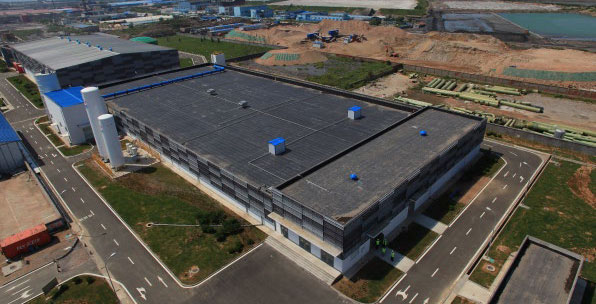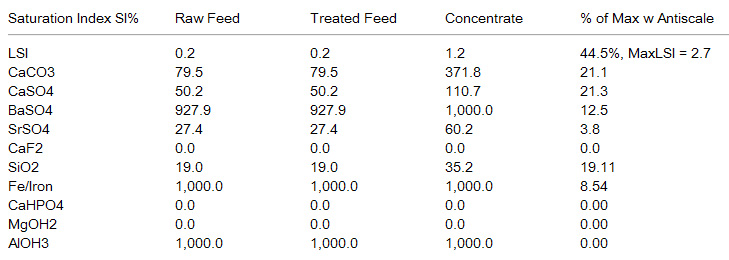Plant details
China’s Qingdao SWRO Desalination Plant went online in June 2012 to provide 100,000 m3 of drinking water per day to the 500,000 person City of Qingdao. The plant was developed by a joint venture between Abengoa and the Municipality of Qingdao and is one of the many seawater desalination initiatives in the country that supply water for residential and industrial use. Investment for the plant reached $176 million and is the largest of its kind in China. Qingdao Water Group is the current owner of the plant.
The Qingdao plant uses water from the Jiaozhou Gulf. Intake pumps bring water from the Gulf for pretreatment with a 250,000 m3 per day Norit ultra-filtration membrane system. There are three high pressure pumps to supply a total of six reverse osmosis membrane trains each with its own energy recovery systems. The reverse osmosis configuration is a 2 pass system with an elevated pH on the 2nd pass for boron removal. Two years of pilot testing helped optimize the feed flow design of 232,000 m3/day in the winter at 3 oC and 235,000 m3/day during the summer at 21 oC.



